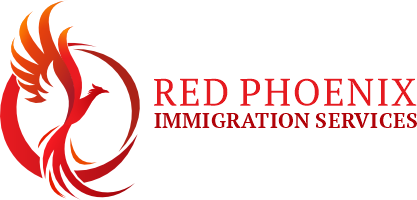Inland Spousal Sponsorship Canada
What is Inland Spousal Sponsorship?
Inland Spousal Sponsorship is a process within the Spousal Sponsorship Program in Canada that allows Canadian citizens or permanent residents to sponsor their spouse or common-law partner who is already living with them in Canada. It is specifically designed for couples who are already together in Canada and wish to obtain permanent residency for the sponsored partner.
Here are some key points about Inland Spousal Sponsorship:
- Eligibility:
To be eligible for Inland Spousal Sponsorship, you and your spouse or partner must meet the requirements set by Immigration, Refugees and Citizenship Canada (IRCC). This includes being legally married or in a common-law or conjugal relationship, and both partners must be residing in Canada.
- Application Process:
The process involves two main components: the sponsorship application and the permanent residence application. The Canadian citizen or permanent resident acts as the sponsor, while the spouse or partner is the principal applicant. Both applications are submitted together to IRCC.
- In-Canada Processing:
Unlike Outland Spousal Sponsorship, which is for couples where the sponsored partner is outside of Canada, Inland Spousal Sponsorship allows the sponsored partner to remain in Canada throughout the application process. They may be eligible to apply for an open work permit, which allows them to work in Canada while their application is being processed.
- Conditional Permanent Residence:
If you have been in a relationship for less than two years or have no children in common with your spouse or partner at the time of application, they may be granted conditional permanent residence. This means that their permanent residency is subject to certain conditions, and they must cohabit with their sponsor for a period of two years after becoming a permanent resident.
- Sponsorship Undertaking:
As the sponsor, you will be required to sign a sponsorship undertaking, which is a legal agreement to provide financial support for your spouse or partner during the sponsorship period. This undertaking typically lasts for three years from the date your spouse or partner becomes a permanent resident.
Inland Spousal Sponsorship Process
The process for Inland Spousal Sponsorship in Canada involves several steps. Here is a general outline of the process:
Determine Eligibility: Before starting the sponsorship process, ensure that you and your spouse or partner meet the eligibility criteria set by Immigration, Refugees and Citizenship Canada (IRCC). This includes being legally married or in a common-law or conjugal relationship, both partners residing in Canada, and meeting other requirements.
Gather Required Documents: Collect all the necessary documents to support your application. This may include identification documents, proof of relationship, evidence of cohabitation, financial documents, and other supporting materials.
Submit Sponsorship Application: As the sponsor, you need to complete the sponsorship application forms, including the Application to Sponsor, Sponsorship Agreement, and other related forms. Pay the required fees and submit the application package to IRCC.
Submit Spouse’s Application: The sponsored spouse or partner needs to complete their own application for permanent residence, including the Application for Permanent Residence in Canada and other supporting forms. They should include the necessary documents, such as identity documents, police certificates, medical examination results, and any other requested information.
Apply for Open Work Permit (if eligible): The sponsored spouse or partner may be eligible to apply for an open work permit to legally work in Canada while their application is being processed. This provides them with the opportunity to support themselves financially during this period.
Application Processing: IRCC will review the sponsorship and permanent residence applications. They will assess the genuineness of the relationship, the eligibility of the sponsor, and the admissibility of the sponsored spouse or partner. This includes security checks, background checks, and medical examinations.
Interview or Additional Documentation: In some cases, IRCC may request an interview with the sponsor or the sponsored spouse or partner to further assess the relationship or clarify any details. They may also request additional documents or information to support the application.
Decision on the Application: Once the application is processed, IRCC will make a decision on whether to approve or refuse the sponsorship and permanent residence applications. If approved, the sponsored spouse or partner will be granted permanent resident status
Conditional Permanent Residence (if applicable): If the relationship is less than two years old or there are no children in common, the sponsored spouse or partner may receive conditional permanent residence. They will need to cohabit with the sponsor for two years after becoming a permanent resident to remove the conditions.
